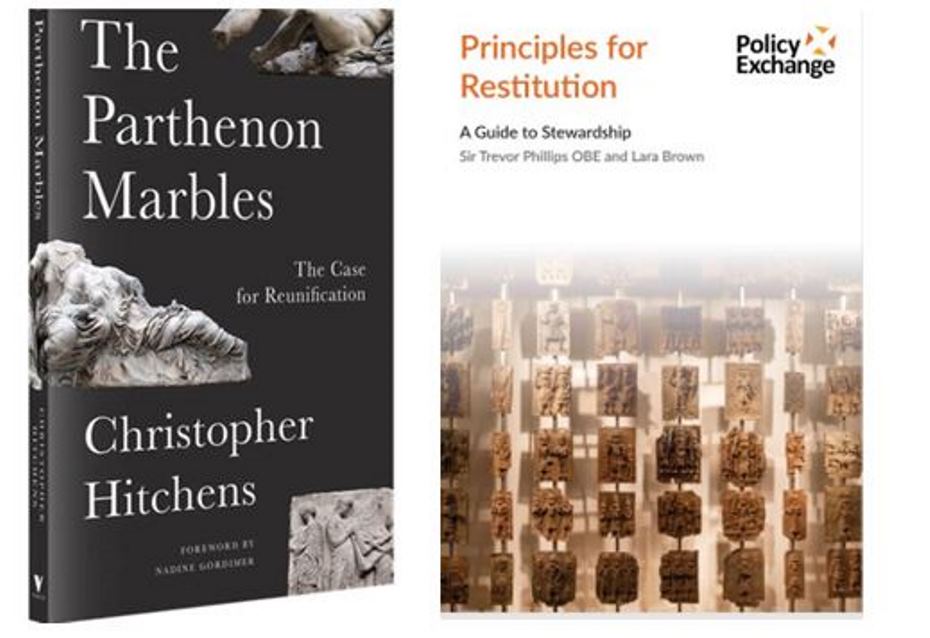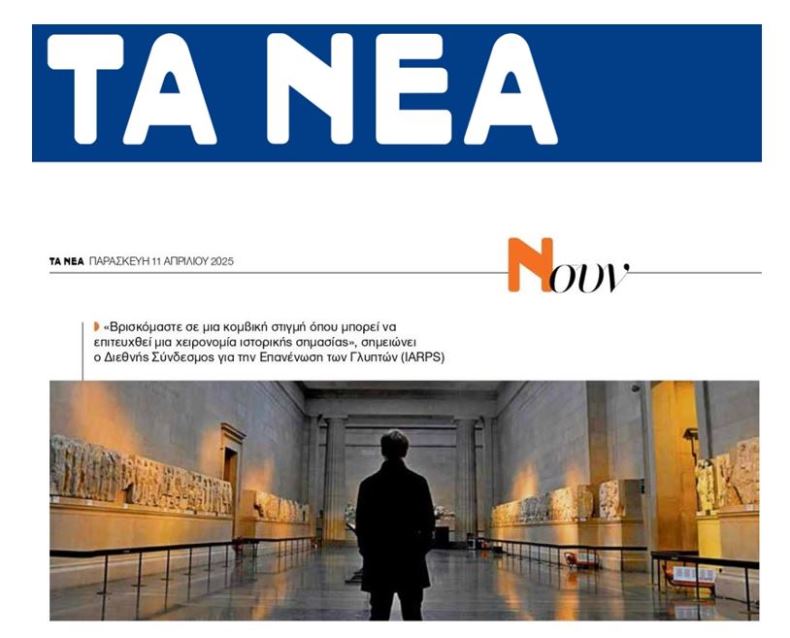Greece welcomed home a small fragment of the Parthenon marbles on Wednesday and expressed hope the gesture by the Italian government would prompt Britain to return its own prized collection of Greek sculpture.
Italian President Giorgio Napolitano presented Greek authorities with the small piece of broken sculpture, removed from a frieze decorating the ancient Parthenon temple by British diplomat Lord Elgin at the start of the 19th century.
"This is the first step toward healing the wound left on the holy temple by the removal of the Parthenon marbles," Greek President Karolos Papoulias told a news conference in the New Acropolis museum, built to house the marbles.
The fragment, depicting the robe and right foot of the hunting goddess Artemis, has spent two centuries in a museum in Sicily after Elgin gave it to the British consul-general there on his way back to London.
It returned from Italy after 13 years of delicate negotiations by the Greek government, which has long called on Britain to give back scores of priceless ancient sculptures known as the Elgin Marbles taken from the hill-top Acropolis.
The bankrupt Scottish Lord Elgin sold the treasures in 1816 to the British Museum, which still contains roughly half of the 160 meter (yard) frieze which adorned the 2,500-year-old temple.
To applause and cries of "bravo," Napolitano helped to fit the fragment, measuring 35 by 34 centimeters (14 by 13 inches), into a reconstruction of the frieze on the museum's glass-fronted upper hall, parallel to the Parthenon.
Expected to be open to the public next year, the museum was built at the foot of the Acropolis, under the marble temple dedicated to the goddess Athena, which was completed in 432 BC as the crowning glory of Athens' "Golden Age."
Under Italian law, the fragment will be on loan from Sicily's Antonio Salinas museum, but officials said the deal was permanent. Italian officials also said the Vatican museum had agreed to return two pieces from the Parthenon later this year.
"Greece and Italy are often characterized as open-air museums and welcome every year millions of visitors ... For these reasons we cannot accept smuggling of artifacts from their homeland," Napolitano said before inaugurating an exhibit of 74 stolen antiquities recovered by Greece and Italy.
Most of the artifacts in the exhibition came from illegal excavations in Italy and were discovered in museums and private collections in the United States.
The British Museum has refused to return the treasures, which it says were acquired by Elgin under a contract with the Ottoman empire that then ruled Greece.





Comments powered by CComment